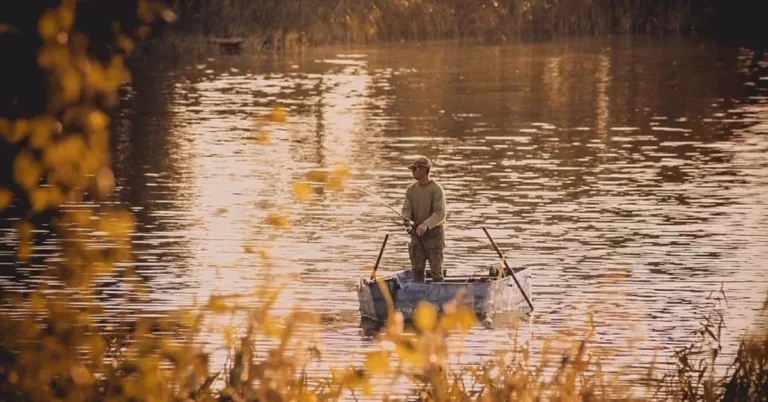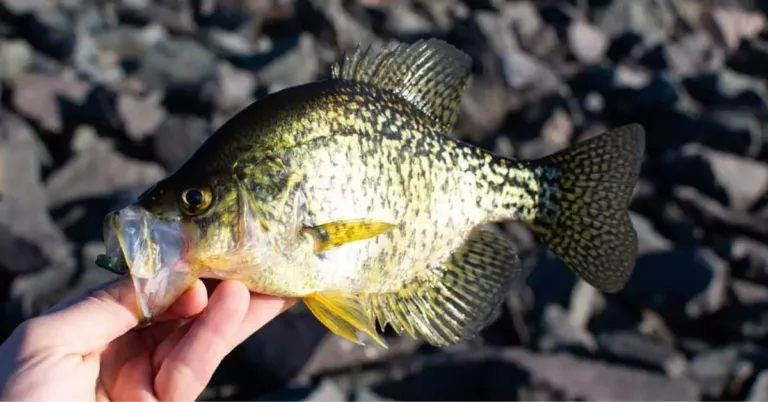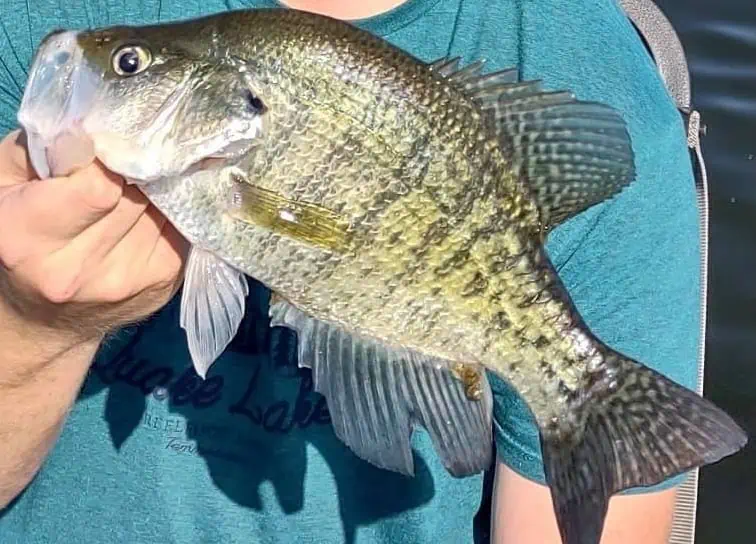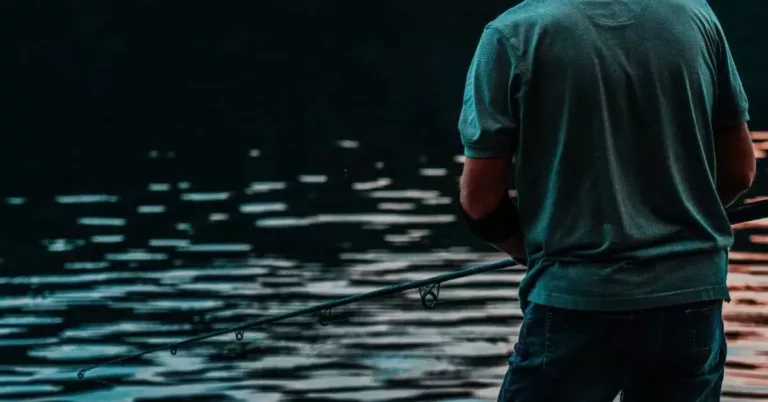Canoe vs Kayak for Fishing: Choosing the Best Watercraft for Your Needs

When it comes to fishing, many people like to get off of the bank and out into the water. Choosing the right watercraft can make all the difference in the success of the trip.
Options to get out on the water include speed boats, bass boats, pontoons, canoes, kayaks and even fishing float tubes.
Obviously which one of these options is best for you depends on a variety of factors. Some of those being budget and the waters you intend to fish on.
Today we are going to dive into the lower end of the watercraft budget and look at canoes and kayaks to see the advantages and disadvantages of both.
Canoes and kayaks are both popular choices for anglers, but which one is better? The answer is not simple, as both have their pros and cons depending on the specific needs of the fisherman.
Diving in we are going to start by looking at the advantages and disadvantages of canoes.
Canoe for Fishing
When it comes to fishing, canoes have their own advantages and disadvantages compared to kayaks. Most of the advantages and disadvantages of canoes come from the way they are designed.
A canoe typically is a framework fit with some kind of outer shell, in most modern canoes this tends to be fiberglass. Canoes usually have an open top and very little buoyancy if they happen to get filled with water. This makes it easy to enter them, but causes some concerns if they are subjected to possible flooding.
Advantages of Canoe for Fishing
One of the biggest advantages of a canoe for fishing is the amount of space it offers. Canoes are typically wider than kayaks, which means they can accommodate more gear and people. This makes them perfect for fishing with a partner or carrying a lot of equipment.
Often they are fit with benches that allow you to comfortably sit in them for extended time periods and they tend to be easier to get in and out of than most kayak designs.
Another advantage of a canoe is its stability in calm waters. Thanks to their wider hulls, canoes are less likely to tip over, even when two people are fishing from them. This makes them ideal for fishing in lakes and ponds, where the water is usually calm.
Canoe fishing also allows for a more traditional experience. With a canoe, you can paddle to your fishing spot and enjoy the scenery along the way. It’s a great way to relax and enjoy nature while also catching fish.
Their wider and larger design allows you to have additional fishing gear, such as spare rods, coolers and other equipment that make your trip more enjoyable.
Disadvantages of Canoe for Fishing
While canoes have their advantages, they also have some disadvantages when it comes to fishing. The first is their weight. Canoes are much heavier than kayaks, which makes them more difficult to transport and launch. Their added weight also requires more effort to paddle, which can be tiring, especially on longer trips.
Another disadvantage of canoe fishing is their lack of maneuverability. Canoes are not as agile as kayaks, which can make it harder to navigate through narrow channels or around obstacles. This can be a problem when fishing in rivers or streams with faster currents.
Finally, canoes can be more difficult to fish from when standing up. Unlike kayaks, which have a lower center of gravity, canoes can be more unstable when standing up, which can make it harder to cast and reel in fish.
Canoes also tend to be easier to swamp than kayaks which are designed for rougher waters.
Overall canoes tend to fare poorly on rivers with currents and obstacles but can excel in larger bodies of slower water such as ponds and lakes.
Kayak for Fishing
Kayaks have become increasingly popular for fishing due to their maneuverability and ease of use. While many kayaks might be considered either to small or poorly equipped for fishing, there are many modern models made specifically for that purpose.
One such model is the Pelican Sentinel. This option is relatively inexpensive and is designed for fishing trips.
These fishing kayaks are particularly useful for solo anglers who need to navigate tight spaces and shallow waters.
They also feature many of the amenities crucial for fishing, things such as fish storage, rod holders and even places to secure tackle and bait can be found on many of the models.
Advantages of Kayak for Fishing
One advantage of kayaks is their portability. They are lightweight and easier to transport than canoes. This makes them a great choice for anglers who like to fish in different locations or who may not have room to store a larger canoe.
Due to their design, Kayaks tend to be more maneuverable than canoes, which makes them ideal for navigating through narrow waterways and tight spaces found along rivers and smaller waterways.
Kayaks are also more stable in rough waters, with their design allowing them to be submerged and quickly right themselves and remain afloat, this makes them a great choice for ocean fishing as well as fishing in faster river waters.
Kayaks designed specifically for fishing, such as thePelican 110 Fishing Kayak, are often equipped with features such as rod holders, storage compartments, and anchor systems, which make them convenient for anglers.
Disadvantages of Kayak for Fishing
One of the disadvantages of kayaks for fishing is their limited storage space. While they do have storage compartments, they are often smaller than those found on canoes. This can make it difficult to bring along all the gear and equipment needed for a successful fishing trip.
Another disadvantage is that some models of kayaks can be difficult to get in and out of, particularly for anglers with mobility issues. This tends to be less of an issue for those kayaks designed for fishing but is still a consideration you should take into account.
Learning to turn and paddle a kayak is slightly different from a canoe, and can be a challenge for beginners. Though their lighter weight makes up for this as you learn to operate your kayak.
Finally, kayaks can be more expensive than canoes, particularly if you are looking for one with all the features needed for fishing. However, there are also more affordable options available, particularly for those who are just starting out.
Comparison between Canoe and Kayak for Fishing
Stability
When it comes to stability, canoes and kayaks have their own pros and cons. Canoes are generally wider and have a flat bottom, which makes them more stable than kayaks. However, canoes are also more susceptible to tipping over in rough waters or when carrying heavy loads. On the other hand, kayaks are narrower and have a more streamlined design, which makes them faster and more maneuverable, but also less stable than canoes.
Overall a fishing kayak is going to give you a more stable platform in most cases if you select a model that is a bit wider.
Speed
In terms of speed, kayaks are generally faster than canoes due to their streamlined design and lower profile.
Kayaks are also easier to paddle because they require less effort to move through the water, which makes them a popular choice for anglers who want to cover more water in less time.
Canoes, on the other hand, are slower and require more effort to paddle, but they are also more comfortable and stable for longer trips on calm waters.
If speed is a major deciding point then a kayak is going to provide you the best performance in this area.
Storage Capacity
When it comes to storage capacity, canoes generally have more space than kayaks. Canoes have a larger open deck area, which makes them ideal for carrying larger items like coolers, camping gear, and other supplies.
Kayaks, on the other hand, have limited storage space due to their streamlined design, but they often have built-in storage compartments and hatches to keep essential gear and equipment within reach.
If multiple people or extra gear is desired this is the area that a canoe excels in, however with careful selecting of gear and consideration of features you can find a kayak that meets your needs in this area as well.
One great option is the Kayak Cooler which also comes with attached rod holders to maximize the use of space on your kayak or canoe.
Maneuverability
Both canoes and kayaks are relatively easy to maneuver, but kayaks are generally more agile and responsive than canoes. Kayaks have a smaller turning radius and can quickly change direction, which makes them ideal for fishing in tight spaces or navigating through narrow channels. Canoes, on the other hand, are slower to turn and require more effort to maneuver, but they are also more stable and comfortable for longer trips on calm waters.
Portability of Canoes vs Kayaks
Kayaks are often smaller in both length and width than canoes, additionally, they are lighter than canoes as well. This makes them relatively easy to transport both by hand and smaller vehicles.
They are also relatively easy to store in a garage with many storage solutions allowing them to be suspended from the ceiling or walls freeing up floor space.
Conclusion
When it comes to choosing between a canoe and a kayak for fishing, there is no clear winner. Both have their advantages and disadvantages, and the choice ultimately comes down to personal preference and the type of fishing you plan to do.
If you prefer to fish in calm waters and want a more stable platform, a canoe may be the better choice. Canoes are generally larger and can accommodate more people and gear, making them ideal for family fishing trips or longer excursions. They also offer more space for storing tackle and other equipment.
On the other hand, if you plan to fish in faster-moving water or want a more maneuverable vessel, a kayak may be the better option. Kayaks are easier to control in choppy water and can be more efficient for accessing hard-to-reach fishing spots. They are also easier to transport and store, making them a popular choice for anglers who like to travel to different fishing locations.
Ultimately, the choice between a canoe and a kayak for fishing comes down to personal preference and the specific needs of the angler. Both offer unique advantages and can be excellent choices depending on the situation. By considering the factors discussed in this article, you can make an informed decision and choose the vessel that best suits your specific needs.






